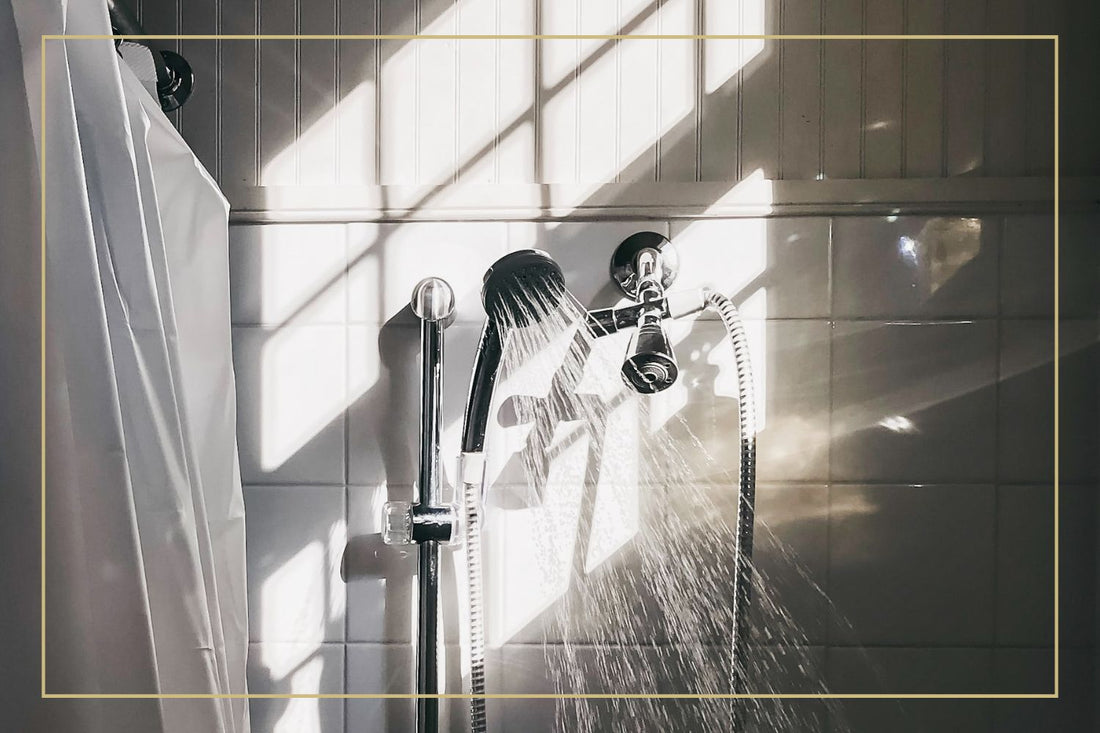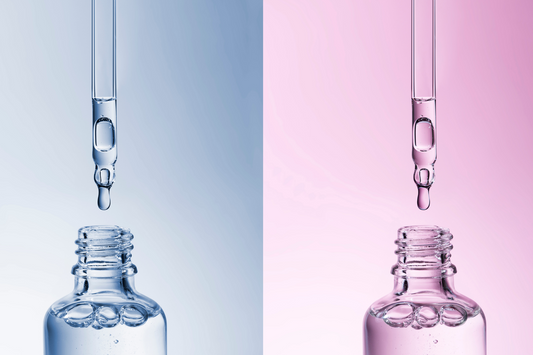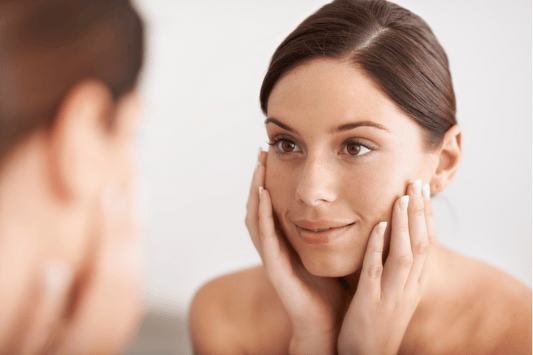If you’ve recently moved to a new house or apartment and all of a sudden started experiencing hair loss, then you might have encountered hard water as a potential reason. But can hard water really cause hair loss? In this article, we’ll discuss what is defined as hard water, whether hard water can cause hair loss, what you can do about it, and other tips to prevent hair loss more broadly.
What is hard water?
Hard water is water with a high mineral content, particularly in calcium and magnesium. Hard water is created when the underground water going to our homes passes through soil and rock that contains high amounts of these minerals. Magnesium and calcium dissolve especially well in water, which means that these are the main elements most frequently found in hard water.
Up to 85% of American homes have hard water, so it isn’t necessarily bad that your water may contain calcium and magnesium - it’s normal! In fact, calcium intake is important for bone health and magnesium intake is important for normal nerve and muscle function.
The hardness of your water (how much calcium and magnesium it contains) varies depending on where you live; the regions of the United States that contain the most hard water are the northern Midwest, south Florida, and northern Texas. The United Kingdom also has extremely hard water, especially in cities like London and Newcastle. If you live in any of these areas or areas nearby, you may be showering and washing your hair with very hard water.
Can hard water cause hair loss?
The short answer is yes, hard water can cause hair loss, although indirectly. Hard water can cause hair breakage and damage, which can lead to hair loss down the line if left unattended. Not everyone responds to hard water the same way. Since hard water contains calcium and magnesium, what it does is create a thin layer of these minerals on your scalp. This is also the reason why, in areas with hard water, your hands might feel slimy after washing them with soap and copious amounts of water - it’ll feel like the soap isn’t coming off!
The film of calcium and magnesium makes it more difficult for water to penetrate into your skin, and a balance of moisture is important for your hair to ensure that it stays strong, beautiful and healthy. Some effects you might see as a result of very hard water on hair include hair breakage, thinning, a dry scalp, and tangling. A 2016 study corroborates the idea that hard water can cause hair loss and hair damage; hair samples taken from 15 women and exposed to very hard water revealed that the samples decreased in thickness and began to look ruffled. Short periods of washing your hair with hard water is okay and very normal! Problems arise with time, affecting the health of your scalp, and ultimately, your hair follicles.
What you can do about how hard water causing hair loss
While hard water can cause hair loss, it’s difficult to simply get up and move to a different region with softer water. Here are some much easier things you can do about hard water causing hair loss:
Clarifying shampoos
Clarifying shampoo, which is a type of shampoo meant specifically to trap and remove dirt and other impurities from your scalp, can be used to get rid of the mineral deposits in your hair that prevent moisture from entering your follicles. Clarifying shampoo can also be useful for people who don’t wash their hair frequently, who are swimmers, or who have oily hair. As a consequence, your hair can take on the appearance of more volume and regain its shine. This could prevent and minimize hard water from causing hair loss.
Hair masks
A hair mask is a moisturizing product that can reverse the damage caused by the anti-moisturizing effects of hard water. A hair mask is often applied generously to your hair, all the way from the scalp to the ends of your strands, as a substitute for conditioner. Hair masks are often filled with essential oils and butters, which work to keep moisture in your hair. Hair masks are usually meant to be kept in your hair for at least five minutes, two times a week.
Water softener shower head
Soft water is the opposite of hard water: it contains lower amounts of calcium and magnesium. While it’s very difficult to get rid of minerals in the water completely, you don’t absolutely have to have pure water to protect your scalp from the potential breakage. A water softener shower head contains carbon to rid of the calcium and magnesium in the water and protect from hard water causing hair loss.
Another alternative is to install a water softener in your home to purify all your water, but this can be much more expensive if you’re only looking to purify your shower water.
Conclusion
Now that you know that hard water can cause hair loss in severe cases, as well as why it can cause damage, we hope you consider our suggestions on what you can do to prevent or even reverse damage that might have been caused by hair loss from hard water. If you’re looking for other ways to treat your hair loss, such as a serum solution, consider Revela’s Hair Revival Serum! It is the first clinically tested hair treatment for hair loss and the first solution using ProCelinyl to target hair follicle health. See the results for yourself!
Sources
- https://www.usgs.gov/special-topics/water-science-school/science/hardness-water
- https://whirlpoolwatersolutions.com/learning-center/water-softeners/hard-water-the-hard-facts/
- https://medlineplus.gov/ency/article/002423.htm
- https://www.healthline.com/health/hard-water-hair-damage-treatment
- https://www.olivaclinic.com/blog/hair-fall-due-to-hard-water-causes-prevention/
- https://monpure.com/blogs/news/hard-water-impact-scalp-hair-health
- https://www.mindbodygreen.com/articles/how-to-moisturize-hair
- https://pubmed.ncbi.nlm.nih.gov/26711619/
- https://www.healthline.com/health/how-to-use-hair-mask
- https://7haircare.com/do-you-need-a-clarifying-shampoo





